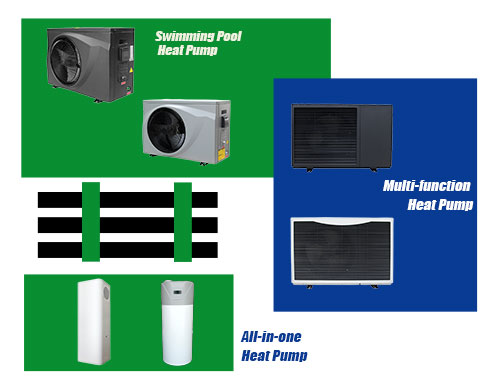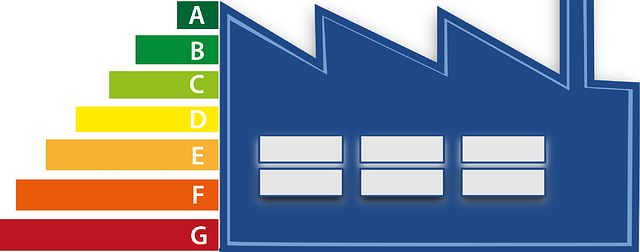As families and businesses increasingly look for ways to reduce their carbon
footprint and operating costs, many are turning to heat pumps as a
cost-effective and environmentally friendly solution for heating and cooling
their facilities. Heat pumps have gained popularity among electric appliance
importers, offering a versatile and energy-efficient way to control indoor
temperatures year-round. In this article, we will explore the reasons why more
and more equipment distributors are purchasing heat pumps for their customers,
and how they can benefit from this investment.

A heat pump is a device that can be used for both heating and cooling
purposes. It works by transferring heat from one place to another, using a
refrigeration cycle that is similar to that used in a refrigerator.
There are several reasons why someone might choose to use a heat pump:
Energy efficiency: Heat pumps can be more energy efficient than traditional
heating and cooling systems because they move heat rather than generating it.
This means they can use less energy to achieve the same level of heating or
cooling as other systems.
Versatility: Heat pumps can be used for both heating and cooling, which means
they can be a good choice for regions with moderate climates where both heating
and cooling are needed throughout the year.
Cost savings: Because heat pumps are more energy efficient, they can result
in lower energy bills over time. Additionally, some governments and utilities
offer incentives or rebates for installing energy-efficient heat pumps, which
can help offset the initial cost.
Environmental benefits: By using less energy, heat pumps can reduce
greenhouse gas emissions and help mitigate climate change.
Heat pumps are a profitable investment for businesses due to their energy
efficiency, which leads to lower operating costs and energy bills. Governments
and utilities are also incentivizing their use due to their ability to reduce
greenhouse gas emissions and increase the use of renewable energy. Their
versatility in providing both heating and cooling makes them a cost-effective
solution for regions with moderate climates.
Now that we have established the benefits of heat pumps and why they are
becoming increasingly popular, it’s important to know how to choose a good heat
pump for your business. With so many different types and models of heat pumps
available on the market, selecting the right one can be a challenging task. In
this next section, we will provide some tips on how to choose a heat pump that
meets your requirements. By following these guidelines, you can ensure that your
investment in a heat pump is a wise one.

Consider energy efficiency
When choosing a heat pump for your business, one of the most important
factors to consider is its energy efficiency. A heat pump’s energy efficiency is
measured by its SEER (Seasonal Energy Efficiency Ratio) and HSPF (Heating
Seasonal Performance Factor) ratings. These ratings indicate how much heating or
cooling a heat pump can provide relative to the amount of energy it consumes.
The higher the SEER and HSPF ratings, the more energy-efficient the heat pump
will be, which can translate into significant savings on your operating costs
and energy bills.
It’s worth noting that while an energy-efficient heat pump may have a higher
upfront cost than a less efficient model, the long-term savings on the operating
costs and energy bills can more than offset this difference.
In addition to saving money, choosing an energy-efficient heat pump can also
help reduce the carbon footprint. By consuming less energy, an energy-efficient
heat pump can help reduce the amount of greenhouse gas emissions that are
produced in generating the electricity needed to operate it.

Check for incentives and rebates
When considering purchasing a heat pump for your business, it’s important to check for any incentives or rebates that may be available to you. Many
governments and utilities offer these incentives to encourage businesses to
invest in energy-efficient heating and cooling systems.
These incentives can come in various forms, such as tax credits, rebates,
grants, or low-interest financing. They can significantly reduce the initial
cost of purchasing and installing a heat pump, making it a more affordable
option for businesses. In some cases, the incentives may even cover the entire
cost of the heat pump, making it a very attractive investment.

Look for a reputable manufacturer
When choosing a heat pump for your business, it’s important to select a
reputable manufacturer that has a proven track record of producing high-quality,
reliable products. Choosing a heat pump from a manufacturer with a good
reputation means that you can have confidence in the product and trust that it
will deliver reliable and consistent heating or cooling for many years.
One way to identify a reputable manufacturer is to check their online
reviews, industry certifications, and awards they have received. A manufacturer
that has received positive reviews from other businesses or households is a good
sign that their products are reliable and worth considering. Similarly,
certifications from recognized organizations that verify the quality and
performance of products can indicate that the company uses high-quality
materials and manufacturing processes.
Besides, a good warranty is an important consideration when choosing a heat
pump. A manufacturer that stands behind its products with a strong warranty can
provide peace of mind and financial protection in case of unexpected failures or
defects.
In conclusion, choosing the right heat pump for your business is a crucial
decision that can have long-lasting impacts. By considering factors such as
energy efficiency ratings, manufacturer reputation, and available incentive
programs, you can make a well-informed decision that meets your specific
requirements and provides lasting value.


